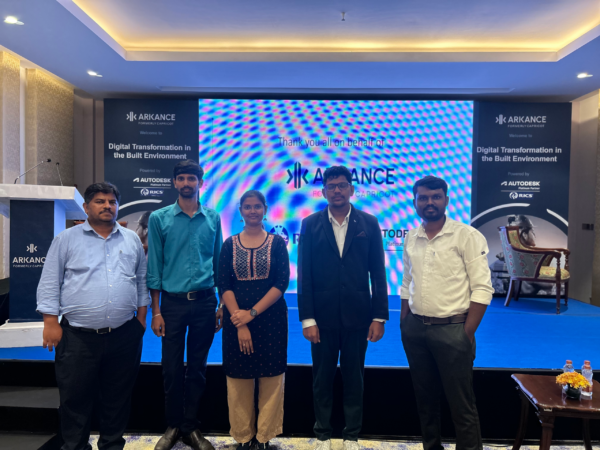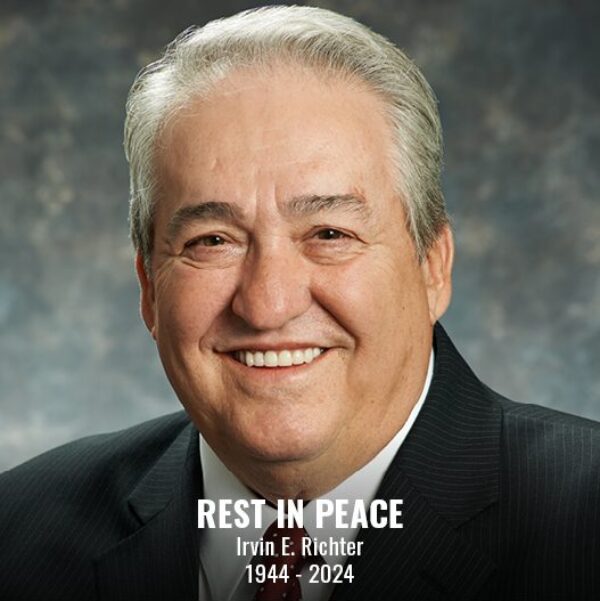
July 15, 2024 | Articles
Construction’s Digital Transformation & The Tools of Modern Project Management

Despite lagging worldwide economies, increasing governmental regulation and a sharp spike in competition, the pharmaceutical and larger life science markets are expected to thrive over the next few years. According to Hill International Vice Presidents Jeffrey M. Peragallo and Samuel J. Williamson, the life science industry is expected to grow by $320 billion to $1.4 trillion in product sales through 2018.
“This sector covers more than just pharmaceutical clients. Beyond the top-tier firms there are a large number of diverse companies that supply the industry—from generic manufacturers to contract manufacturing operations,” Peragallo said. “The life science core industry also includes medicine manufacturing, electro-medical apparatus manufacturing, medical equipment and supplies manufacturing, biological, chemical and Research and Development. Pharmaceutical clients typically talk with suppliers that service the life science industry.”
Both have first-hand knowledge of the industry, its needs and its inter-dependencies. Before joining Hill International, both Peragallo and Williamson worked for pharmaceutical giant Merck. Peragallo was in charge of procurement, hiring firms like Hill. Williamson spent 19 years at Merck, responsible for managing its growing slate of capital projects in Asia.
Acting as an extension of staff, Hill professionals have been on assignment at Merck for the past 18 years, and have assumed a broad array of responsibilities in varied aspects of construction, from concept and design through construction and closeout. Staff includes contract administrators, material and equipment purchasing analysts, expeditors, project controls specialists, claims analysts, and construction contract auditors, among others.
“Our projects range from small renovations and retrofits within live cGMP (“current Good Manufacturing Practices”) operations to new ‘greenfield’ construction of full-scale sterile facilities with project values upwards of $450 million,” Peragallo said.
Outsourcing of key responsibilities will soon become a pervasive industry trend, Peragallo predicts.
“Life science firms are growing, with capital projects planned all over the world, and they’ll be spending a tremendous amount of capital over the next few years,” he said. “At the same time, firms are realizing that construction is not their core business. Their engineering and project management staff are getting smaller and smaller. So, construction is going up while staffing is going down, which creates a perfect opportunity for us.”
“The capital management trend in this sector clearly shows that major manufacturing companies are moving to leveraging/outsourcing their project management requirements, with a number of other companies moving to a hybrid execution model of a combination of internal and external resources providing the management,” Peragallo continued in more detail.
Conversely, outsourcing will continue to rise as life science firms streamline their project management operations to maximize efficiency, and keep pace with growing competition. “Cost-cutting is pervasive among life science firms, as margins continue to get tighter due to competition,” he said.
While the northeastern United States has long been a hub for life science firms, the markets is growing throughout the world. Williamson, who is based out of Hill’s office in Singapore, said he is strategically located to help life science clients manage that growth.
Williamson has 25 years of experience in the pharmaceutical and life science industries, managing and overseeing capital projects worth billions. He has worked with some of the largest firms in the world, including Novartis Pharma and Merck, in locations including the United States, Brazil, France, Italy Portugal, Ireland, the United Kingdom, India, Israel, Singapore, China, Malaysia and Japan.
Williamson has seen many changes over the past two and a half decades. “Certainly, the industry has become more cost-focused when it comes to [capital] investments, with investments that are much more targeted,” he said. “Several years ago, there was a push to build more factories. Now, companies are waiting until they have a new product that has gone through all phases of clinical trials and all levels of regulation before they’ll commit to building a new facility.”
Williamson said he expects that regulations on the industry will continue to rise, as will the inherent paperwork. “People are ingesting what is being manufactured, and the facility, its equipment, products and even the air quality in the rooms have got to be safe,” he explained. “There are a lot of checks and balances that go into ensuring that the facility will be able to make products safely.”
Like Peragallo, Williamson sees more changes ahead, as many pharmaceutical companies invest in the research and development of biologics and new cancer drugs. Spending on new cancer drugs is expected to grow by more than 50 percent over the next few years. The production of biologics, in particular—drugs that are derived in some way from living organisms, and have revolutionized treatment of many cancers and such chronic conditions as multiple sclerosis, arthritis and rheumatoid arthritis, Crohn’s disease and other auto-immune diseases—is expected to skyrocket over the next several years. But, biologics and cancer treatments are expensive and time-consuming to research, test and produce—often taking years and billions of dollars to make before they hit the market.
The facilities in which biologics are manufactured also are more complicated and take longer to build, Williamson said. Hill’s experience managing life science projects, from both outside and inside firms, will be invaluable to clients as they invest in this new, emerging field, both Williamson and Peragallo said.
Hill International’s global presence impresses life science clients which, like Hill, operate in virtually every corner of the world. “We can respond to virtually any need anywhere,” Peragallo said. “And, we can respond in a way that’s timely, with properly vetted professionals, with a high quality of service that fits in seamlessly with the client and its unique needs.”
“It’s an industry that’s always striving for what’s ahead, and willing to grow to get there,” Peragallo added. “That’s where we come in. We help them get there.”
Williamson will promote Hill’s project management services to life science firms throughout the world, but his home and office will remain in Singapore. Originally from the U.K., Williamson, first came to Asia in 2000 for a three-year assignment.
“What led me to Asia was the fact that all of the pharmaceutical companies were trying to get a foothold in Asia, and Singapore was making it very attractive to them, as do places like Ireland and Puerto Rico before that,” he said.
Despite recent economic challenges, Asia, and China in particular, remain full of opportunities, Williamson said. “China has 1.3 billion people and a growing middle class. China also requires the pharmaceutical companies to manufacture there. To do that, you need manufacturing facilities.”
Williamson loves Asia, and has settled his family in Singapore indefinitely. “When we came here, my youngest was four and my oldest was eight. They’ve gone to school here, grown up here. It’s become home,” he said.
Williamson has managed numerous capital projects there and elsewhere. He relishes the ones that are particularly challenging, and enjoys creating a sense of collaboration among project stakeholders. He also doesn’t forget the end-user of a facility that’s being built.
“I could have managed other types of construction, but I like working in the life science industry. We’ve helped to build facilities that make products that have cured very sick people and have eradicated disease,” Williamson said. “I feel like we’re making a difference.”
by Tricia M. McCunney
Share

July 15, 2024 | Articles
Construction’s Digital Transformation & The Tools of Modern Project Management

July 10, 2024 | Articles
GC/CM at Post Falls: Managing Avista’s North Channel Dam Rehabilitation Project

June 23, 2024 | Articles
Irv Richter – An Innovator, A Pioneer, A Leader (1944 – 2024)

June 14, 2024 | Articles
Environment of Care Standards – Meeting the Challenge (Part Two)

June 13, 2024 | Articles
PMO for Public Transit Project Success: The Reopening of Philadelphia’s Franklin Square Station

June 7, 2024 | Articles

May 17, 2024 | Articles
Hill Interim Federal Market Sector Leader Jane Penny Receives Golden Eagle Award

April 11, 2024 | Articles
A Model Move: Managing Move-In at the Sylvia H. Rambo U.S. Courthouse